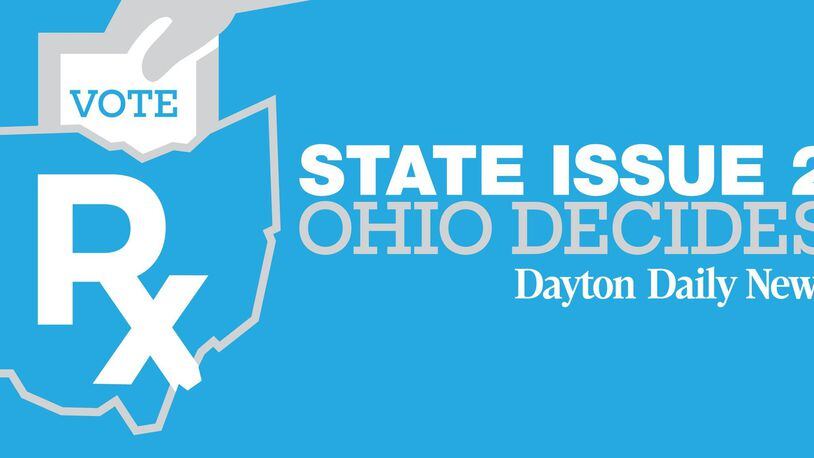FULL COVERAGE: Helping you understand Ohio Issue 2
The ad in question says, "Issue 2 gives Ohio the lowest known prices and will cut taxes by $400 million."
That wording would appear to be false. An analysis of the ballot issue by Patrick Murray of the Center for Health Care Research and Policy says it could result in $400 million in annual savings for the state of Ohio, but the ballot language does not include any reference to taxes.
The opposition also takes objection to the phrase “lowest known prices,” which it says is not possible to know.
EVENT: Issue 2 forum in Dayton Oct. 12
“Advising the public that voting yes on Issue 2 will result in the ‘lowest known prices’ or a ‘tax cut’ is untrue. It contradicts the actual ballot language being presented to voters this fall and is refuted by other advertisements published by the same group,” the letter from the No campaign states.
Supporters of the issue say the legislature considered a tax cut in the last budget but didn’t have the money to give back to Ohioans.
If Issue 2 could create savings of $400 million, then the legislature might be able to give a tax cut in the future, said Dennis Willard, spokesman for “Yes on 2.”
“We believe that saving $400 million a year will create opportunities for lawmakers and the governor,” he said. “A yes on Issue 2 will lessen the tax burden on Ohioans and we believe that is a tax cut.”
MORE: Ohio’s drug price ballot issue: What’s really going on?
The wording “lowest known prices” simply refers to the price the VA pays, which is the lowest of any federal agency, Issue 2 supporters say.
As a result of a 2014 court case, Ohio no longer has any official sanctions for lying in a campaign ad. In that ruling, U.S. District Judge Timothy Black overturned a 1976 law that banned false statements in political advertisements.
RELATED: Campaign ad law’s limbo means gloves off in hot race
The opposition’s letter to TV stations urges them not to run the ad and says they could be liable for false content. But it’s up to each individual station whether they want to pull an ad or not.
WHIO-TV, which along with the Dayton Daily News is owned by Cox Media Group, received the letter, along with one from the “Yes on 2” campaign defending the statements in the ad.
Rob Rohr, market vice president for Cox Media Group Ohio, said, “Based on what we know today and based on advice from counsel, WHIO will continue to air the ad.”
MORE ISSUE 2 COVERAGE:
Yes vs. No on Issue 2: What they’re saying on both sides
Your questions answered about Issue 2
Issue 2 pits emotion versus complex drug pricing system
Issue 2 supporters say opposition is hiding donor info
About the Author
